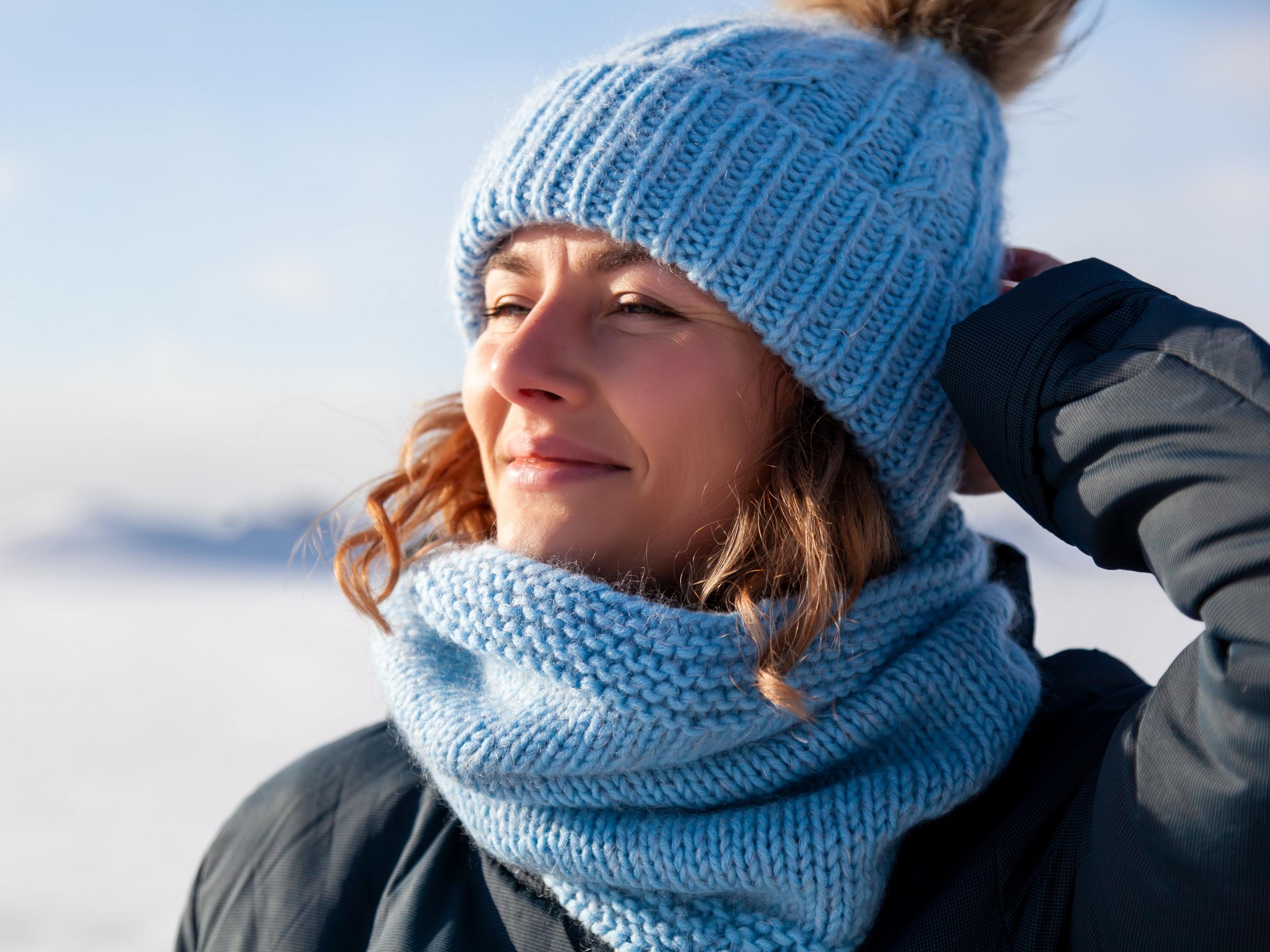More than a quarter of British adults don’t know you can get sun damage in winter, survey claims
'UV radiation is present all year round and can cause conditions including cataracts, photokeratitis, photo ageing and permanent skin damage'

Your support helps us to tell the story
From reproductive rights to climate change to Big Tech, The Independent is on the ground when the story is developing. Whether it's investigating the financials of Elon Musk's pro-Trump PAC or producing our latest documentary, 'The A Word', which shines a light on the American women fighting for reproductive rights, we know how important it is to parse out the facts from the messaging.
At such a critical moment in US history, we need reporters on the ground. Your donation allows us to keep sending journalists to speak to both sides of the story.
The Independent is trusted by Americans across the entire political spectrum. And unlike many other quality news outlets, we choose not to lock Americans out of our reporting and analysis with paywalls. We believe quality journalism should be available to everyone, paid for by those who can afford it.
Your support makes all the difference.More than a quarter of British adults do not know that their eyes and skin are at risk of UV damage in the winter sun, a survey claims.
The poll of 2,000 people found three in ten were not aware the sun can still be damaging on a cloudy day and a quarter would only associate UV damage with sunburn.
Commissioned by optical technology company ZEISS, the survey revealed many people are not doing enough to protect their eyes from the sun.
Dr Debbie Laughton from ZEISS said: “Protecting our eyes and surrounding skin from damage should be a top priority whatever the weather as UV radiation is present all year round.
"Unfortunately it poses a significant risk to our eye health and can cause conditions such as cataracts, photokeratitis, photo ageing and permanent skin damage.”
While the majority of those surveyed agreed it is important to protect your eyes from UV radiation, a fifth said they did not know how to do this.
However, 13 per cent said they do not see protecting their eyes as a priority and one in 20 said they "do not care".
Yet more than half said they made an effort to protect their skin from sun damage by wearing a moisturiser containing SPF.
When choosing a pair of glasses, more than half of those surveyed said they prioritised comfort and fashion over the UV protection provided.
The industry standard is to provide protection against UV rays up to 380nm, but leading health organisations define UV radiation as up to 400nm.
Of those polled who wear glasses, just a third said they were aware of the level of UV protection provided by their glasses.
And a third of all respondents were not aware that UV rays could cause cataracts, as well as other serious conditions.
Dr Debbie Laughton, from ZEISS, added “According to the WHO (World Health Organisation), roughly 20 per cent of all cataracts are caused or worsened by UV radiation so it’s a real issue and the eyes and surrounding skin are a challenging area to protect.
"Glasses can offer some UV protection, but the majority of clear lenses don’t offer full protection and most consumers are unaware of the UV protection offered by their lenses. Premium sunglasses are not the only option for UV protection.
"Worryingly our study also found one in twenty believe this damage can be reversed.
''However, the damage can’t be reversed, the best approach is to protect the eyes and surrounding skin from UV radiation.”
SWNS
Join our commenting forum
Join thought-provoking conversations, follow other Independent readers and see their replies
Comments